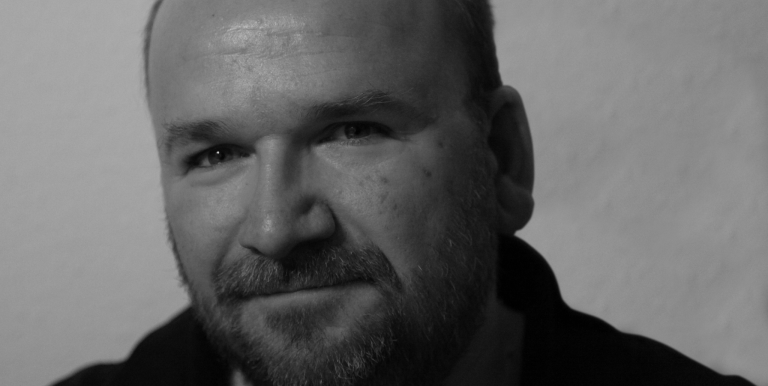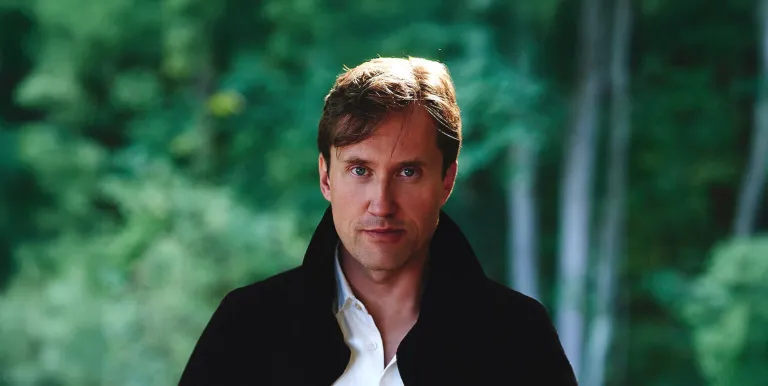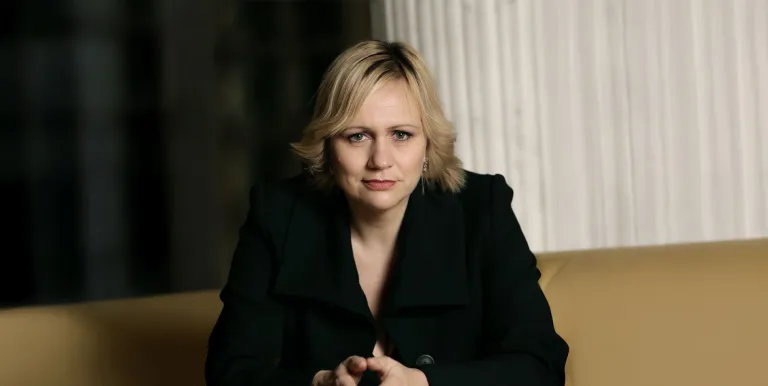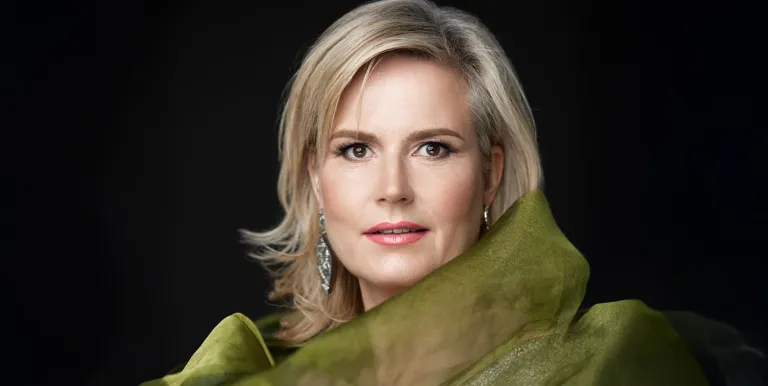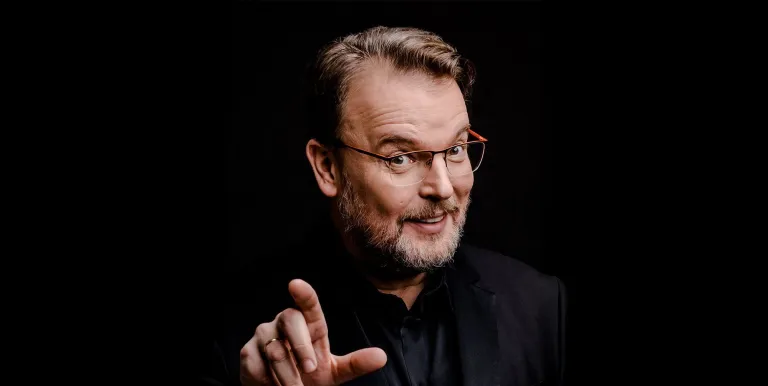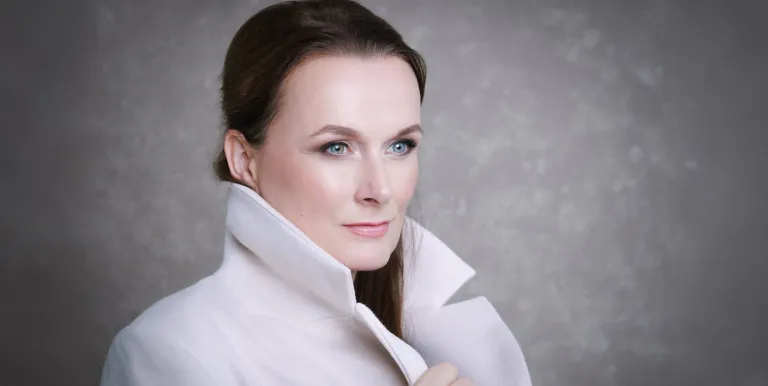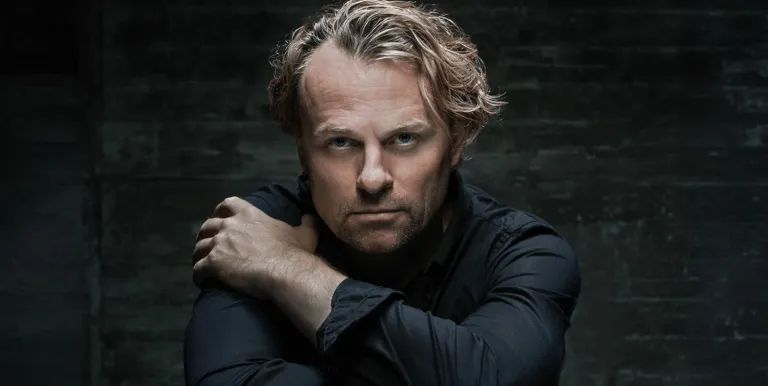Two intervals
Performers:
Creators:
Featuring:
Wagner
Götterdämmerung - A music drama in three acts (German-language performance, with projected subtitles in Hungarian and in German)
Richard Wagner spent more than 25 years composing the Ring of the Nibelung cycle of four operas, with the libretto alone – as he himself stated – taking more than four years to complete. 'The words float like a ship on a sea of orchestral harmony,” the composer said, and Götterdämmerung serves as the high water mark and denouement of the tetralogy, as the leitmotifs of the previous three operas weave through the music, bestowing upon it the magical power to speak without words. Love and loathing, machinations, intrigue and liebestod – the ring that was cursed in the first opera and caused so much anguish thereafter is returned to the water nymphs on the bed of the Rhine and the world order is restored. Valhalla, the hall of the gods, is engulfed in flames and the melody of renewal sounds from on high.
One of the most sought-after Wagnerian singers of our time, Christian Franz has taken the stage in eight productions at the Bayreuth Festival so far, and has played a number of Wagner's title roles, including Parsifal, Tristan and Siegfried, the latter on the stage of New York's Metropolitan Opera, among other venues. Rúni Brattaberg came from the distant Faroe Islands to conquer the world's opera stages – after obtaining a diploma in photography in Copenhagen. He has played important roles in two productions at the Met, one of them also a Wagnerian opera, and has also jumped in for a performance conducted by Simon Rattle.
Waltraud Meier is one of the leading Wagnerian sopranos of recent decades: she has performed in 23 productions at Bayreuth over the course of 18 years, working with such conductors as Riccardo Muti, Daniel Barenboim, Claudio Abbado, James Levine, Lorin Maazel és Zubin Mehta. Polina Pasztircsák is one of the youngest performers at the Wagner in Budapest Opera Festival, but already has some major triumphs behind her. Her career was launched when she took first place at the prestigious Geneva International Music Competition, and she has been a recurring guest in Europe's opera houses and concert halls ever since. Judit Németh is one of Hungary's finest Wagnerian singers. She made her début at the Bayreuth Festival in 2000, and returned there for six seasons afterwards. Eszter Wierdl is frequently seen performing at the Wagner in Budapest Opera Festival: she took second place at the Salzburg International Mozart Singing Competition held in 1999, and is a soloist with the Hungarian State Opera. Evelyn Herlitzius made her début in 1997, as Leonora (Fidelio) at the Dresden Semperoper, where she has since portrayed Venus (Tannhäuser), Kundry (Parsifal) and Brünnhilde (Die Walküre, Siegfried, Götterdämmerung). She has sung in Deutsche Oper Berlin’s Ring cycle, and at Milan’s La Scala (Ortrud, Lohengrin). She made her Bayreuth début in 2002, as Brünnhilde, and in the years to come she was invited
back for the entire Ring, as well as for the roles of Kundry, Ortrud and Isolde. In Berlin and New York, at the invitation of Sir Simon Rattle, she sang Brünnhilde in a concert version of Die Walküre together with the Berlin Philharmonic. She has appeared in major opera houses in Europe and Japan, as well as in Salzburg and Aix-en-Provence. In 2002 she was recognised with the title of “Kammersängerin”, and has also been nominated for a Grammy Award. Oskar Hillebrandt is a returning guest to the Wagner in Budapest Opera Festival. Ever since making his début at Opera Stuttgart, he has been regularly invited to leading opera houses both in Europe and also further afield (Chile, Tokyo, New Zealand, Canada, New York/Carnegie Hall), and he is a regular collaborator at the most eminent international festivals (Bayreuth, Glyndenbourne, Bregenz). Distinguished with the title of “Kammersänger”, the heldenbariton boasts a repertoire of more than 150 roles, with his greatest successes coming from his portrayals of Wagnerian roles such as Telramund, Alberich, Klingsor, Wotan, Kurwenal, Wolfram, Hans Sachs and the Dutchman.
More information about the Wagner in Budapest Opera Festival here.
Presented by: Müpa Budapest

Interjú
Korszakváltás fokozatosan
Rajna Martin, a Magyar Állami Operaház első karmestere és a Luxemburgi Filharmonikus Zenekar főzeneigazgatója társ-művészetivezetőként csatlakozik a jövőre húszéves Budapesti Wagner-napokhoz.
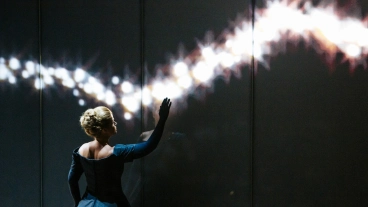
Jegyzet
Wagner-hősök nyomában
Miért nem veszi észre a naiv Siegfried az ellene szövődő ármányt, és miért kell Sentának meghalnia a bolygó hollandiért? Nézzünk egy kis Wagner-hőstipológiát a karakterek jobb megértése érdekében!
-
We wish to inform you that in the event that Müpa Budapest's underground garage and outdoor car park are operating at full capacity, it is advisable to plan for increased waiting times when you arrive. In order to avoid this, we recommend that you depart for our events in time, so that you you can find the ideal parking spot quickly and smoothly and arrive for our performance in comfort. The Müpa Budapest underground garage gates will be operated by an automatic number plate recognition system. Parking is free of charge for visitors with tickets to any of our paid performances on that given day. The detailed parking policy of Müpa Budapest is available here.

